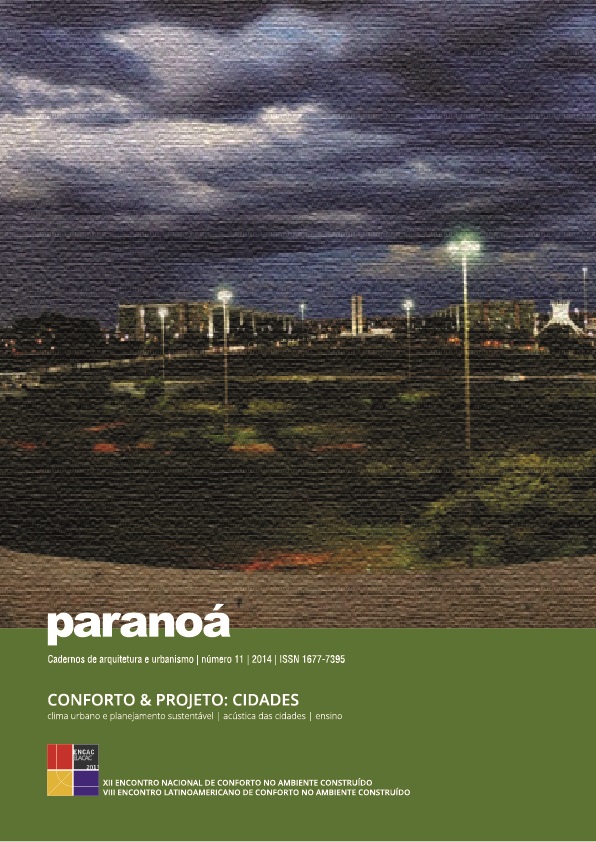Potencial de redução da temperatura de superfície pelo aumento do albedo nas diversas regiões brasileiras
DOI:
https://doi.org/10.18830/issn.1679-0944.n11.2014.12080Keywords:
Albedo, Urban microclimate, Urban heat island, Thermal comfort, Energy efficiencyAbstract
Urban growth progressively replaces green areas by building materials, which absorb more solar radiation and retain heat, altering urban microclimate and increasing urban heat island effect and therefore causing discomfort in hotter regions and during summer, with increase energy consumption for HVAC systems. A strategy for reducing surface temperature is to adopt surface materials with higher albedo. Once surface temperature results of both incident energy and albedo, the objective here was generate a Global Horizontal Irradiation (GHR) Map of the Brazilian territory in order to estimate the potential cooling effect of increasing albedo in several regions, serving as guide to decide where albedo increase would be useful, and how much would be its cooling effect. The methodology adopted was to calculate the average GHR using the database created by Prof.MaurícioRoriz, with hourly data of 411 cities from INMET weather stations, between 2000 and 2010. The cooling potential effect was calculated from an empirical relationship presented in the area literature. The results were converted into a thematic map, using the kriging method for interpolating the data sample. In the generated maps larger variations can be noticed in the cooling potential from region to region, noticeable even for same latitudes.
Downloads
Downloads
Published
How to Cite
Issue
Section
License
Autores que publicam nesta revista concordam com os seguintes termos:
- Autores mantém os direitos autorais e concedem à revista o direito de primeira publicação, com o trabalho simultaneamente licenciado sob a Licença Creative Commons Attribution que permite o compartilhamento do trabalho com reconhecimento da autoria e publicação inicial nesta revista. http://creativecommons.org/licenses/by/4.0
- Autores têm autorização para assumir contratos adicionais separadamente, para distribuição não-exclusiva da versão do trabalho publicada nesta revista (ex.: publicar em repositório institucional ou como capítulo de livro), com reconhecimento de autoria e publicação inicial nesta revista.
- Autores têm permissão e são estimulados a publicar e distribuir seu trabalho online (ex.: em repositórios institucionais ou na sua página pessoal) a qualquer ponto antes ou durante o processo editorial, já que isso pode gerar alterações produtivas, bem como aumentar o impacto e a citação do trabalho publicado (Veja O Efeito do Acesso Livre).















